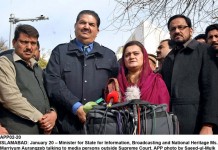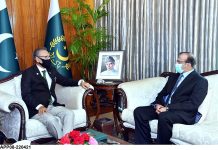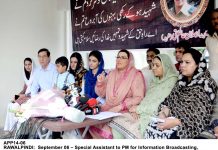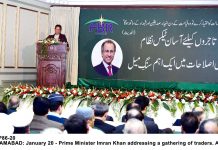ISLAMABAD, Aug 01 (APP):The Speakers at an intensive workshop on women leadership on Thursday underscored the need for concerted efforts to counter ‘toxic leadership’ for women at workplaces through impactful depiction of positive leadership to challenge and change prevailing odd dynamics.
The Islamabad Policy Research Institute (IPRI) hosted a Leadership Accelerator: A Two-Day Intensive Workshop titled “Women Leading Change: Shaping the Future” led by distinguished speakers including Nishaa Ishtiak, Director Women Development and Additional Commissioner Islamabad; Irum Khan, Corporate and Academic Trainer; Sadaf Asim Abbasi, former senior vice-president Islamabad Women Chamber of Commerce and Industries; Sumera Azam, Additional Director FIA; Dr. Aneel Salman, Chair Economic Security and Siddique Humayun, Director Advocacy IPRI. The event brought together a diverse audience comprising working professional women, students, educators, bureaucrats, researchers, and academics, a news release said.
The workshop focused on the significance of personal leadership and self-awareness, as well as understanding the importance of self-identity. The discussions emphasized that culture is an invaluable asset, which has often been sidelined in modern perspectives of personal and professional development. Participants were encouraged to embrace their cultural heritage as a foundation for their leadership journey.
One of the critical issues highlighted during the workshop was the prevalence of toxic workplaces and the resulting leadership. The speakers stressed the need for concerted efforts to counteract toxic leadership through what they termed as a “visual hammer.” This concept involves creating clear, impactful visual representations of positive leadership to challenge and change the prevailing odd dynamics. It was also noted that bounded rationality, the limitations in decision-making processes due to cognitive constraints, often hinders progress. Women were urged to confront their fears and develop resilience to overcome these limitations and excel as leaders.
The workshop underscored the importance of achieving long-term goals through the daily practice of drive, direction, and discipline. It was acknowledged that women come from all walks of life, bringing diverse experiences that can enrich decision-making processes. The speakers emphasized that decision-making is a multifaceted process involving strategic planning, technical analysis, and operational understanding. These skills are crucial for effective leadership and must be honed continuously.
The speakers pointed out the necessity of using data strategically to achieve optimal results. They warned against the pitfalls of information overload and stressed the importance of discerning relevant data from the excess. Adaptability and creativity were highlighted as essential traits for modern leaders to avoid becoming obsolete. The discussion also touched upon the importance of eliminating unnecessary practices and focusing on what truly matters for progress.
A significant portion of the workshop addressed the contemporary narrative that often portrays women as manipulative and men as tactful. This skewed perception can only be changed by placing more women in leadership positions, thus reshaping the narrative through representation and action. Strategic communication was identified as a critical component of effective leadership. Consistency in communication, the speakers argued, is vital to maintaining credibility and fostering trust.
The two-day intensive concluded with a collective commitment from all participants to implement the insights and strategies discussed during the workshop. The attendees pledged to support each other in their leadership journeys and to continue advocating for positive change in their respective spheres of influence.
مضمون کا ماخذ : کمپیوٹر لاٹری کا جیک پاٹ














